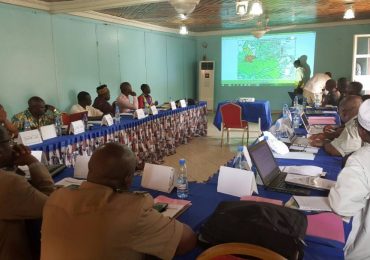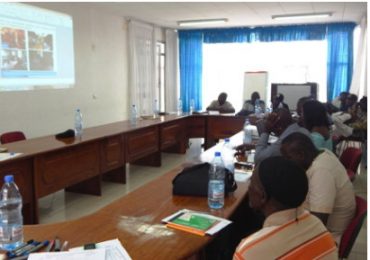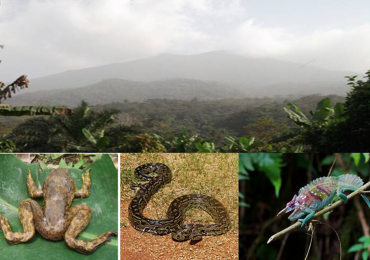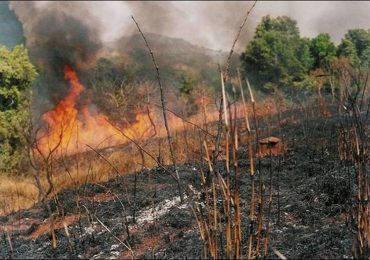Farmers, who had hitherto been working the southwestern slopes of Mt. Bamboutos in the Magha-Bamumbu area all year round using huge amounts of chemical fertilizers, have been educated on more friendly farming methods. The chemical fertilizers are known to eventually leach into waterways that serve as sources of potable water.
By Sheron Endah
At a workshop organized in Magha on June 8, 2015 by the Environment and Rural Development Foundation (ERuDeF), and sponsored by the GEF Small Grant, the mainly Irish potato farmers were trained on agro-forestry practices and reforestation as a lasting and natural method to solve soil degradation and increase soil fertility.
The facilitator of the workshop, Jumbam Blaise, trained the farmers on alley cropping, live fencing and especially contour planting as farming takes place on hilly landscapes that offer very difficult terrain.
He also reiterated that the Forest Garden System is a method which allows for multiple agricultural activities on the same farm land without degrading the ecosystem.
Jumbam explained that farmers could nurture their animals, farm their crops and plant fast growing nitrogen-fixing trees such as Acacia, Leucaena and Calliandra on the same piece of land. He added that these trees will restore soil

fertility, act as fuel wood, reverse soil erosions, frequent landslides and are very nutritive for animals.
After the workshop, a participant said: “I will no longer use chemical fertilizers which are very expensive and destroy the soil.”
She said she had been using over 200,000 francs cfa worth of chemical fertilizers for one hectare of land each year to grow her crops.
This training was greeted with so much euphoria that every participant wanted to take part in the setting up of the agro forestry nursery, not minding their meeting uniforms.
The communities of Magha are prone to landslides, soil erosions and loss in soil fertility as well as severe water shortages in the dry season as much of the vegetation cover has been cleared to give way to farmlands.










